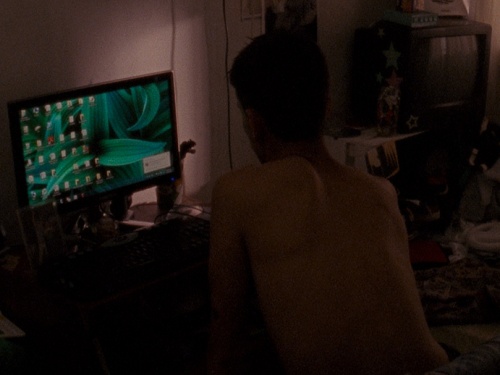A Nos Amours explores the ideology of the pop-up cinema
As part of a yet-to-be-defined project, A Nos Amours has begun thinking around the idea of 'pop-up' in collaboration with Ella Harris; a theorist fascinated by what has recently been termed "The Temporary City". Pop-up cinema screenings, like A Nos Amours, can be read as part of an emerging temporary geography in London, the un-routine rhythms of which skirt and subvert normal urban activities.
A Nos Amours asked Ella to begin by wondering what makes pop-up screenings distinct, what sets them apart from regular screenings, and perhaps why there is such a charge about such events. We aim to explore what films seem to mean or say, and how we as exhibitors, viewers, and consumers should understand ourselves. We hope to instigate an open discussion in this yet-to-be-determined context.
We asked Ella to make a start:
"As Henri Lefebvre argued, the everyday is routinely ‘colonised’ by the regular (and regulated) rhythms of work and commerce. Such rhythms, he wrote, order and socialise human beings. Central to such a colonisation, for Lefebvre, was the ‘reign of the commodity’; a regime of work (production) and leisure (relaxation) which becomes ‘natural,’ and provides the apparently intuitive framework within which humans exist together. Such a framework guides human beings through space and time and in doing so normalises some kinds of social interactions, privileges certain cultural and labour activities and produces and reiterates dominant ideologies.
Cinema has long been considered part of such an organisation. From the dynamic, social site of the early 20th century to the modern multiplex, cinema-going is a measurable rhythm of collective urban existence. What’s more, cinema has historically been a shared window into other worlds, a mechanism by which ideas are disseminated communally and thereby naturalised into the rhythms of the everyday. Under the supremacy of the multiplex, geopolitical and cultural norms are instilled by the sheer frequency of screenings: James Bond shapes the national geopolitical perspective, ‘chick flicks’ guide the romantic psyche of teenagers. By interrupting these rhythms, by appearing in the temporal gaps between ‘ordinary’ cinema schedules and offering alternative, one-off happenings, can pop-up film showings, such as those held by A Nos Amours, rescue islands of time for the dissemination of different ideas? Can we consider pop-up cinema a mode of escape from the ‘repetitive organisation’ of the cultural world, a time-space within which unprecedented ideas, connections and imaginations can take place?
Spectators are invited on a voyage of introspection; encouraged to examine their own experience of pop-up film spectatorship. How is the nature of spectatorship different in temporary places? What kinds of sociality do pop-ups create and support? What is the relationship between the real world of the city and the reel world on screen?"
A Nos Amours: Carnival of Souls is showing Thursday 15 November in Cinema 1 at 8.30pm. www.anosamours.co.uk





